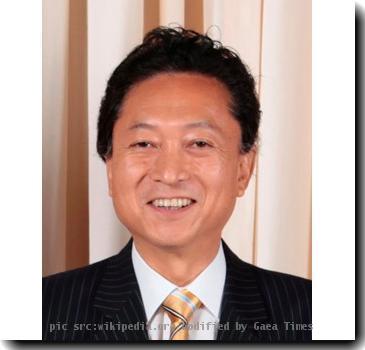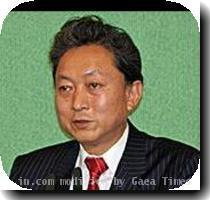Okinawa town elects mayor who opposes US base expansion, increasing pressure on PM
By Tomoko A. Hosaka, APSunday, January 24, 2010
Okinawa vote pressures Japan on US Marine base
TOKYO — Japan’s prime minister said Monday he may nix a key military deal with Washington on relocating U.S. troops, after a local election in Okinawa showed that residents oppose any new Marine base in their region.
Residents of Nago elected a mayor who is staunchly against moving a base there from a larger city nearby — plans which Washington considers fundamental to its troop realignment in the region. An agreement on the relocation of Futenma Marine air field was made in 2006 under the previous government that lost power last year.
Prime Minister Yukio Hatoyama said the results of Sunday’s election reflected the will of the people, and that Japan would completely re-examine its accord with the U.S.
“The country will start from scratch on this issue and take responsibility to reach a conclusion by the end of May,” he told reporters.
His government has repeatedly put off making a decision, straining ties with the U.S., its main military ally, in the face of security concerns like North Korea’s nuclear program and China’s rising strength.
Nago chose challenger Susumu Inamine — who campaigned against any expansion of U.S. military presence in the area — over incumbent Yoshikazu Shimabukuro. Inamine won with 52.3 percent of the vote, according to the city’s election office.
The city’s mayor has little say in national policy, but with Japanese parliamentary elections coming in the summer, the results quickly reverberated throughout the country.
“It wasn’t just Shimabukuro that was defeated in the election. The biggest loser was Japan’s postwar military base strategy,” the national Asahi daily said in a front-page editorial Monday.
The Obama administration has already expressed frustrations with Tokyo’s delays in finalizing the relocation of the Futenma base — now in the larger Okinawa city of Ginowan — saying it is delaying the broader 2006 plan to reorganize the U.S. military presence in Japan.
Experts said the election results makes it nearly impossible for Hatoyama to move Futenma’s facilities to Nago, as was called for in the agreement struck four years ago.
“He can’t make a decision now that’s going to make both the Americans and Okinawans happy,” said Jeff Kingston, Temple University’s director of Asian Studies in Tokyo.
Hatoyama could use the vote as political cover for rejecting Nago as the relocation site by saying, “‘This is how democracy works,’ but that’s not going to play too well in Washington,” Kingston said.
The planned relocation to Nago issue sparked intense protests and dominated debate between the two mayoral candidates. Defeated mayor Shimabukuro supported the base for the jobs and investment it would bring.
Meanwhile, China is likely watching the rift grow between Washington and Tokyo with interest, experts say — even as it welcomes Hatoyama’s overtures to build stronger ties with Beijing and other Asian neighbors.
“This is going to be a tough year for U.S.-Japan relations, and I think in Beijing they take some comfort in that,” said Kingston.
Under a security pact signed in 1960, U.S. armed forces are allowed broad use of Japanese land and facilities. In return, the U.S. is obliged to respond to attacks on Japan and protect the country under its nuclear umbrella.
More than half of some 47,000 American troops stationed in Japan are in Okinawa, where many residents complain about noise, pollution and crime linked to the bases.
Inamine, an independent, ran with the support of Hatoyama’s ruling Democratic Party. His victory Sunday will make it increasingly difficult for the prime minister to resist pressure to shelve the deal.
After securing victory, Inamine celebrated with jubilant supporters gathered at his office.
“I fought this campaign vowing to resist the base,” he said Sunday. “I intend to keep that promise as we move forward.”
Associated Press Writers Malcolm Foster and Jay Alabaster contributed to this report.
Tags: Asia, Beijing, China, East Asia, Greater China, International Agreements, Japan, Local Elections, Municipal Governments, North America, North Korea, Tokyo, United States, Yukio Hatoyama

